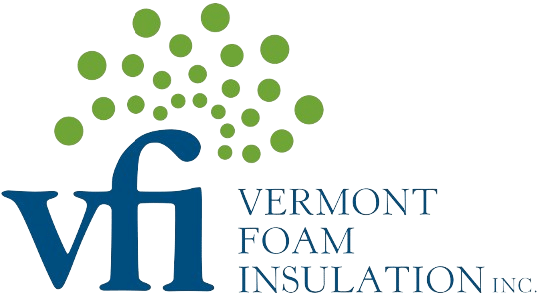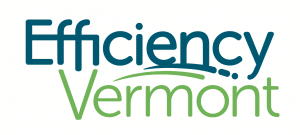There’s nothing worse than a cold, damp home, especially during the freezing New England winter. If you noticed signs of excess moisture in your home last winter, like condensation, mold, or ice dams, you could be dealing with an insulation problem.
Let’s take a look at some of the most common winter moisture problems and how insulation and air sealing can help.
Ice Dams on Your Roof
Do your home’s rafters get heavy with icicles every winter? They may look pretty, but icicles are a sign of ice dams, which can cause serious damage to your home.
Ice dams form when heat from your living spaces escapes into your attic due to insufficient insulation. As your house warms up, this heat travels up and eventually through to your roof, warming the shingles/metal and melting snow. The melted snow flows as water down your roof until it reaches a colder patch, usually near the eaves, and re-freezes. This can build up over time forming a ridge or dam. Now that there’s a blockage, it will stop future snowmelt from draining. The water that can’t get past this build-up starts to dam but doesn’t re-freeze because it’s located over the heated part of the house. As this phenomenon continues, and the dam becomes bigger and holds back more water, it can eventually seep back into your attic through tiny cracks and openings. The gravity of this situation is dependent on the efficiency of the house, the effectiveness of ventilation, the temperature outside and the amount of snowfall.
When water from ice dams does get inside your house or attic, it can cause mold and mildew growth, and even structural damage. It can also seep down into ceilings and walls throughout your home, causing even greater damage. To stop ice dams, you need to make sure your attic is properly insulated. Attic insulation will keep heat inside your living spaces so that your attic and roofing shingles or metal stay cool, preventing ice dams.
Condensation on Windows, Walls & Glass
All air holds moisture, but hot air can hold significantly more moisture than cold air can. If the air in your home gets too cold, the moisture it’s carrying will condense into water, and you’ll see droplets form on surfaces in your home. Condensation can form just about anywhere, but you’re most likely to see it on cold surfaces like windows and exterior walls.
Without proper insulation, it’s very difficult to maintain a steady temperature inside your home. By solving problems with insufficient or under-performing insulation you can keep the air and surfaces in your home warmer, reducing the risk of condensation.
Mold & Mildew in Your Basement or Crawl Space
Have you noticed a musty smell coming from your basement or crawl space? That’s a sure sign of mold or mildew growth. Mold and mildew need water to grow, so if they’re taking over your basement or crawl space, there’s a good chance moisture is coming in.
Water can get inside your basement or crawl space in a number of ways. The right wet basement solution for you will depend on how the moisture is getting in. Often, a combination of spray foam insulation, vapor barriers, and sump pumps is used to control basement and crawl space moisture. Drains and dehumidifiers can also be used.
Get to the Root of Your Moisture Problem With an Energy Audit
If you’ve noticed signs of excess moisture in your home, it’s time to call Vermont Foam Insulation. We are Vermont and New Hampshire’s premier spray foam insulation contractor, and we can help you keep your home warm, dry, and protected this winter with proper insulation and air sealing.
Our team can conduct a visual inspection to evaluate your home’s insulation levels, locate air leaks, and solve your moisture problem at its source. If you live in Vermont, you will also likely qualify for insulation rebates through the Home Performance with ENERGY STAR® program!
Vermont Foam Insulation is a highly experienced, fully licensed spray foam insulation company that you can trust with your home. We use the highest quality insulation products, including Huntsman insulation. Check out our work and read our reviews to see why local homeowners & general contractors call us first!
Solve winter moisture problems with Vermont Foam Insulation. Call 802-367-3113 or contact us to get started.








